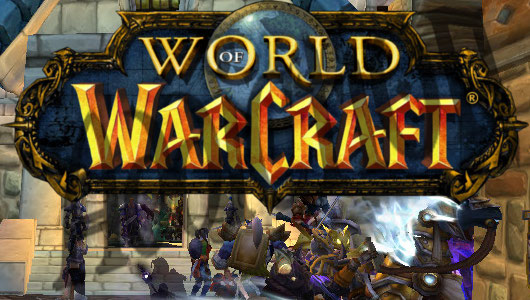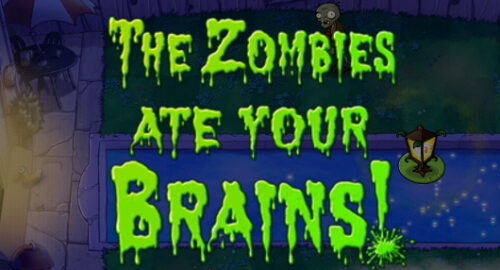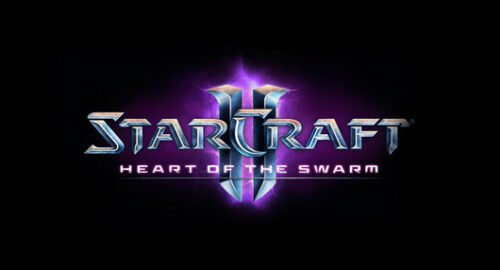Addiction. It’s a dirty word for good reason. Gambling addictions leave people bankrupt. Substance addictions destroy people’s lives mentally, physically and socially. Food and sugar addictions lead to obesity and disease. And then there’s the media addiction, said to destroy peoples’ social lives and careers.
Video games, at their core, are meant to be addictive. A good game will dangle the age old carrot-on-a-stick in front of you for the duration, with the ultimate reward being to finally eat the carrot. Games such as Skyrim and Diablo use character progression as their carrot, enticing players to keep going to make their character stronger or unlock more gear or weapons. Games like Assassin’s Creed or Mass Effect, on the other hand, use the story to keep their players going, promising some sort of conclusion to the events of the game or the character arc of someone the players have grown fond of.
Here’s the interesting thing about the games I mentioned: they’re all supposed to end at some point. Sure, DLC is quite prevalent in today’s world and is supposed to extend the life of a game, but the percentage of games on the market that are meant to go on forever is very slim. That’s where World of Warcraft’s throne sits. Blizzard’s business model for WoW hinges on the idea that players will want to keep going forever. When a player is leveling up , the character progression is meant to keep them going. The next level they’ll learn a new ability, gain another talent point, learn to ride a mount or learn to fly a gryphon. Once the player reaches the level cap, the new carrot is new gear and interesting encounters. Finally, when the player is max level and geared up, Blizzard wants them to get excited for a new piece of content, so the cycle can continue again.
The World of Warcraft “addiction” is always mentioned because of how well Blizzard implements all the systems to keep players going. A lot of gamers scoff at the idea of a $15 a month subscription, but the reality of it is that, for the cost of 2 games every 4 months, WoW players are treated to a truly enormous amount of content that can be as hardcore or as casual as the player wishes. That’s where I believe the magic is in Blizzard’s system. For someone working 48 hours a week with a family and commitments, it’s easy to sit down for 30 minutes and do some quests while chatting with your guild-mates. On the other side of the coin, a kid who spends $15 a month out of his allowance to pay for a subscription can spend a summer doing nothing but playing WoW and constantly be getting something out of it. Those are two extremes, for sure, but the idea that one single game allows for both the extreme casual and the scary hardcore (and every other type of gamer in-between) to get something out of it is something special.
For me, and I’m sure there are others in the same boat, World of Warcraft is nearly the perfect game. I can log in and spend any amount of time (be it 20 minutes or 2 hours) and see some sort of progression. If I’m tired from a long day at work, I can unwind by doing something low impact like questing for a half hour, or if I’m feeling up to something more stressful, I can do some PvP. It’s that kind of modular gameplay, which allows players to be as casual or as hardcore as they feel like, that keeps millions of people paying a subscription every month.
When you look at, say, someone who’s interested in reading an article about World of Warcraft on a niche gaming site named after an explosive object, they’ll typically buy and play as many games as possible over the course of a year, which is perfectly acceptable. Yet, if we only bought one game, paid a monthly fee for it and played that single game as often as we normally play all the others, we’d suddenly be labeled as addicts. Without a doubt there’s people who binge on World of Warcraft in a way that’s not healthy, but the same can be said for any game or activity. I’m positive there are people who have played more Assassin’s Creed multiplayer since it released than I’ve spent on a couple of my WoW characters combined since the Vanilla days, but yet WoW gets the damaging addiction label.
That’s not to say the World of Warcraft addiction doesn’t exist; we’ve seen it out there. It’s simply that this is an addiction to the medium as a whole instead of one single game. Someone with the personality to become addicted to a video game like WoW could just as easily fall into the same exact thing with a game like Skyrim. The only difference is that eventually, they will see everything there is to see in that game. I’ve seen people claim to play Skyrim or Mass Effect 3 for hours upon hours straight in one breath and then scoff at World of Warcraft in the next, using the dirty word “addiction” to justify their dislike of the game. While I find that amusing, I also find it disturbing that this one game gets this stigma, and it makes it hard for me to even tell anyone outside of my Internet gaming bubble that I play WoW, lest they think I’m some sort of filthy addict without a life.
Even Call of Duty and Madden are victims of this particular stigma, only it’s a little bit different from what’s directed at WoW players. The people who play these games are instantly labeled as childish “dude bros” with no life outside of the game. But what about the young woman who partakes in a match or two of CoD to relieve the stress from her nursing job, or the 30-year-old father of two who likes football and plays a couple of games of Madden while his kids are asleep in the dead of night? I’ve never understood why people inside and out of the gaming community choose to label others who only play certain games in an attempt to lift themselves up on a pedestal.
Addiction is a dirty word for good reason. However, it’s often misused in the gaming community to put down certain games and the people that enjoy them, even casually. People who spend many hours a week playing the latest and greatest games turn up their noses at the people who spend the same amount of time (or less) on one single game and cry out “addiction” or claiming these people have no lives. It’s a double standard that has completely wrecked the reputation of a few of the most popular games on the market, and these gaming hipsters like to think they’re better than the people who play these games. But the reality of the matter is this: we’re all equal.





